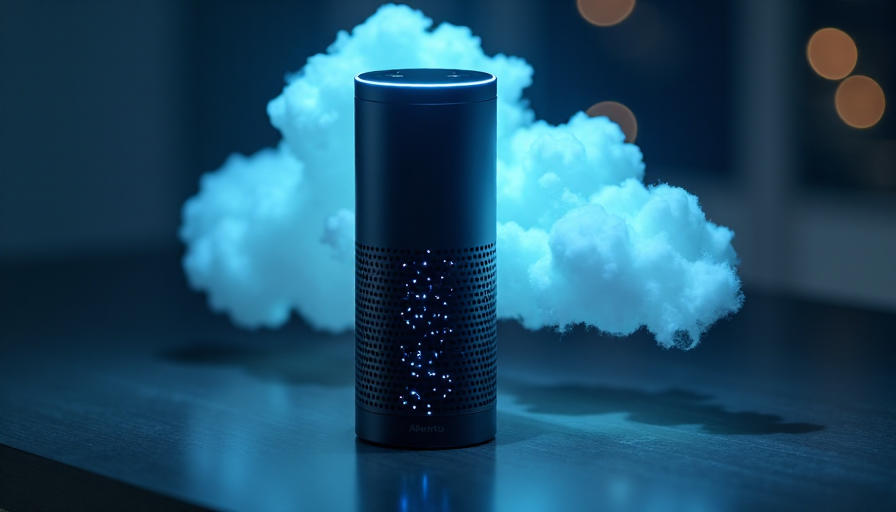
Amazon Reconfigures Alexa Privacy Settings for a Smarter Future
Amazon has initiated a significant change in its approach to Alexa’s privacy settings, marking a transformation in how the smart assistant functions. With the new update, Alexa devices now send every audio recording to the cloud, paving the way for advanced AI-driven "agentic capabilities." This push represents Amazon's bid to harness artificial intelligence for a more personalized and profitable user experience, while simultaneously posing a trade-off between convenience and privacy.
How Voice Assistants Work in the Cloud Era
Voice assistants like Alexa operate by continuously listening for a designated wake word. Once activated, they capture and process spoken commands to execute tasks such as playing music or scheduling events. Traditionally, some high-end Echo models offered a local processing setting that kept recordings stored on the device, ensuring privacy. However, local processing, while improving in accuracy, still falls short compared to cloud-based systems which leverage far greater computing power for natural language understanding.
Two Major Changes to Alexa’s Functionality
Amazon’s modifications, implemented as of March 28, 2025, involve two key aspects:
-
Mandatory Cloud Processing: Previously, select Echo devices allowed users to opt-out of sending voice recordings to the cloud. Under the new update, this option is disabled, meaning all recordings are uploaded for cloud processing. This enables Amazon to further refine the Voice ID feature, which differentiates between speakers in a household to deliver a personalized service.
-
Impact on Personalization Features: A separate setting, "Don’t save recordings," remains available. However, when enabled, it disables the Voice ID functionality, thereby reducing personalization options, such as tailoring calendar events or individualized recommendations.
This dual adjustment forces users to decide: retain privacy by limiting personalization or embrace the enhanced capabilities offered by AI integration.
The Business Landscape Behind Alexa’s New Direction
Amazon’s shift is not just a technological update—it is a strategic business move. Echo devices, initially sold at very low margins to capture market share, have long been viewed as a loss leader. According to industry expert Joseph Turow, Amazon has sold over 500 million Alexa devices, incurring losses exceeding US$25 billion between 2017 and 2021 alone.
To reverse these losses, Amazon has now invested US$8 billion in a generative AI competitor, Anthropic, and launched the AI-powered Alexa+ system in February. Initially available only in the United States, Alexa+ offers more natural language interactions and advanced functionalities like booking flights, services that rely on detailed user profiles linked through Voice ID data.
Envisioning an AI-Driven Ecosystem
The evolution toward "agentic capabilities" suggests a business model built on subscriptions and intermediaries. For example, Alexa+ may eventually be restricted to Amazon Prime members or offered at a monthly fee of US$19.99. Furthermore, this AI system positions Amazon as an intermediary connecting consumers with service providers—much like its existing e-commerce platform where multiple vendors compete for consumer attention.
In this paradigm of "platform capitalism," the benefits seem to lean heavily toward the platform owners. Yet, it is the intertwined network of user data and personalized services that keeps consumers engaged, even as they navigate the delicate balance between functionality and privacy.
Navigating Privacy Concerns
Following a significant US$25 million fine by the Federal Trade Commission for mishandling children’s voice recordings, Amazon has revamped its Alexa privacy controls. Users can now adjust settings via the Alexa app under "More > Alexa Privacy," manage data storage, and even delete individual recordings with a voice command. As Alexa+ becomes more prevalent, users will be challenged to decide how much personal data they are willing to share in exchange for enhanced, agentic functionality.
Exploring Alternative Solutions
For those wary of increased data sharing, third-party alternatives like the Home Assistant Voice Preview offer a more privacy-centric solution. Although this option processes recordings locally and provides limited functionality when compared to Alexa, it represents an important choice for users prioritizing data security over convenience. Ultimately, these changes force users to consider their role within an increasingly interconnected digital ecosystem.
Looking Ahead
Amazon’s strategy underscores a broader trend in the tech industry—where advancements in AI and cloud computing are rapidly reshaping user experiences and business models. As consumers weigh the benefits of personalized, intelligent assistants against the implications of data sharing, the future of digital privacy and functionality remains a dynamic, evolving conversation.
Note: This publication was rewritten using AI. The content was based on the original source linked above.